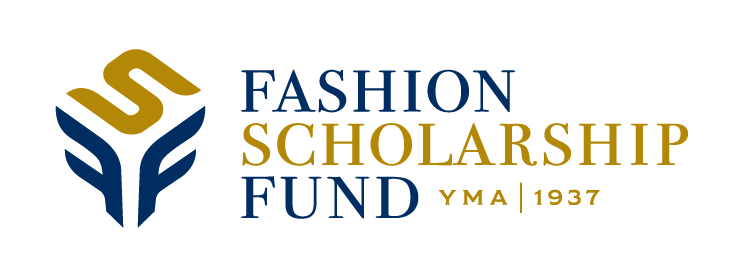Paul Rosengard, President of Anatwine North America, prefaced his breakfast with a John F. Kennedy quote:
“There is an old saying that the course of civilization is a race between catastrophe and education. In a democracy such as ours, we must make sure that education wins the race.”
The quote was a perfect introduction for Paul because of his personal involvement with the integration of the academic realm and the corporate work of the fashion industry.
Paul has been heavily involved with the YMA Fashion Scholarship Fund for many years, from serving as President twice to becoming an active Chairman. During Paul’s career, he held high-level executive positions within several fashion companies, such as Randa Accessories, Perry Ellis International and Li & Fung. He now serves as President at Anatwine North America. In the future, Paul aspires to run one more fashion company, improve his golfing skills, and teach as an adjunct professor a few days a week at the Fashion Institute of Technology, Parsons School of Art and Design, or Columbia Business School.
The first point that Paul discussed was that there are several factors that are indicative of a success trajectory - being blessed with a close-knit and supportive family, possessing a strong work ethic, and obtaining a good education. Paul stressed that education is the ultimate equalizer; it’s a way to level the playing field for everyone. “I personally was able to attend college because of a scholarship I received,” he said. “That’s why I’ve always been so involved with educational non-profits like the YMA Fashion Scholarship Fund; they enable students to pursue their dreams while lessening some of the traditional financial constraints”. He elaborated that he is passionate about what YMA-FSF stands for and stressed that having the YMA-FSF brand on a resume can really set a candidate apart because it showcases both their intelligence and their work ethic. “By completing the case study you show recruiters that you have a natural drive for success and that you can motivate yourself to put in work even when there are no immediate benefits,” he said, “and that’s really important in this industry.”
Next, he shared some tips regarding the scholars’ current internships. “Ask your boss every morning what you can do that day that will add the most value to the company. Try to be as helpful as possible and aim to improve the quality of your contribution to your immediate supervisor.” He then spoke about doing the right thing as opposed to simply doing things right, and shared an anecdote about a time when he had thirty free minutes left at the end of the day and was deciding how he would spend it. “I had a choice to either clear the clutter off my desk and organize it into files, or to call the president of Men’s Wearhouse,” he explained, “I chose the latter because I knew that it had the potential to add revenue, thus, being more value accretive”. Unsurprisingly, one of the four Six Word Phrases that Paul lives by is “Think big, start small, add value.”
Finally, Paul spoke about the limited opportunities that one has to make an impression, and stressed the necessity of capitalizing on every single “right” moment that falls into one’s lap. “How many of you currently have your resume with you?” Paul asked the scholars. Disappointed by the lack of raised hands, Paul emphasized how vital it is to always carry a copy of it, even if that copy is folded eight times, dons a coffee stain, and has been sat on for weeks. “No one cares if your resume isn’t in mint condition outside of an interview setting,” he explained, “the important thing is to have it, or else you may miss out on a career-impacting opportunity.” He also mentioned that preparation (in conjunction with personality) is key to acing an interview and setting yourself apart from the relatively level playing field of recent graduates who have little to no applicable skills yet. “Know the company, know what your interviewer does, and don’t ask questions that you could have already found the answer to online,” he explained. “Come in prepared with insight, probing questions and original thoughts.”
The scholars really enjoyed Paul Rosengard’s unique and thought-provoking breakfast. They received a card with the Six Word Phrases he lives by and were all inspired by his wisdom and insight into what it takes to be successful.
Paul Rosengard’s Best Tips from the Boss:
Begin with the end in mind.
Dig your well before you’re thirsty.
Establish your patterns, practice makes permanent.
Think big, start small, add value.
Become a tree climber, not a well whisperer.
Be friendly to everyone you meet.
The biggest room in the world will always be the room for self-improvement.
Hi! My name is Katie Kornienko and I am the 2018 YMA Fashion Scholarship Fund Summer Intern. I am studying Fashion Merchandising and Finance at the University of Delaware, and I am the Executive Editor of my school’s fashion publication, UDress. I was also a top FSF scholarship winner for Merchandising & Marketing in 2018. Enjoy reading about the fun and engaging events we are hosting this summer for the 2018 scholars!




